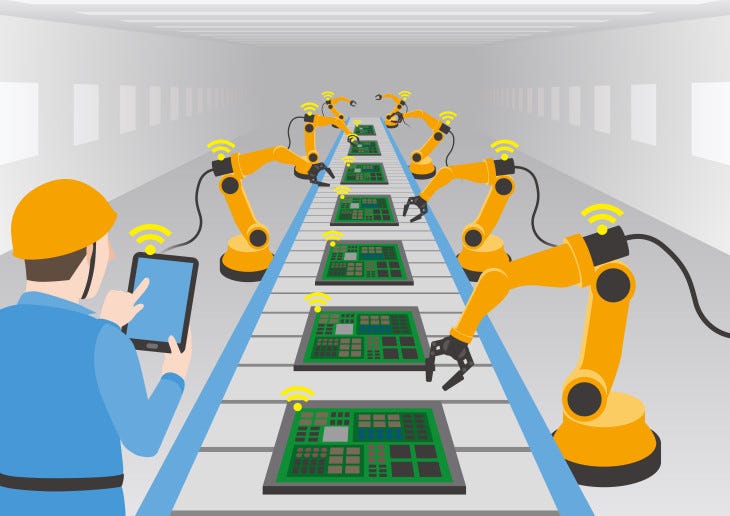Navigating the Impact: AI and Job Automation Reshaping the Labor Landscape

Artificial Intelligence (AI) is not just another wave of technological advancement; it’s the epitome of “routine-biased technological change (RBTC) on steroids.” This paper explores how AI, by infusing intelligence into automation tools, is reshaping the labor landscape. From revolutionizing physical tasks to transforming cognitive functions, AI’s implications for employment, wages, and inequality are profound. Drawing on historical trends and economic logic, this study predicts a trajectory akin to past RBTC automation, marked by employment polarization, wage disparities, and decoupling of wage and productivity growth. Despite the challenges, the paper identifies avenues for intervention, emphasizing the pivotal role of policies in mitigating AI’s adverse effects and fostering inclusive growth.

The rise of Artificial Intelligence (AI) signifies more than just a technological leap; it’s a seismic shift in the realm of automation, amplifying the impact of routine-biased technological change (RBTC). This paper delves into the far-reaching consequences of AI on labor, dissecting its dual role in augmenting physical and cognitive tasks. Through a blend of historical analysis and forward-looking insights, it unveils the potential trajectory of AI’s influence on employment dynamics, wages, and inequality. While acknowledging the challenges ahead, the paper underscores the imperative of policy interventions to shape a more equitable future in the age of AI.

AI’s Influence on Labor
AI’s transformative power lies in its ability to imbue automation with cognitive prowess, redefining tasks from factory floors to office desks. By automating both routine and nonroutine physical and cognitive functions, AI mirrors past RBTC trends, heralding a wave of employment polarization and wage disparities. The hollowing out of middle-skill occupations and the widening education premium underscore AI’s role in reshaping labor markets.
Furthermore, AI exacerbates the decoupling of wage growth from productivity, amplifying income inequality. The diverging fortunes of high-skill workers benefiting from productivity gains and low-skill workers displaced by automation underscore the profound societal impacts of AI. However, historical variances among advanced economies highlight the mediating role of policies, institutions, and societal norms in shaping labor outcomes.

Navigating the Impacts
Despite the disruptive potential of AI, avenues for intervention exist to steer its effects toward more inclusive growth. Lifelong education and training policies can equip workers for evolving job demands, while active labor market interventions facilitate smooth transitions. Extending social benefits and legal protections to gig workers and reforming income-support policies are essential steps toward fostering good jobs and reducing income disparities.
Moreover, the prevailing narrative around AI innovation, centered on efficiency and cost reduction, must shift towards creating quality jobs. Intelligent policies, tailored to promote equitable distribution of AI’s benefits, are paramount for navigating the challenges ahead. Ultimately, the economic dividends of AI hinge not on technological prowess alone but on the wisdom of policy frameworks designed for inclusive prosperity in the AI era.

Conclusion
As AI reshapes the contours of work, its implications for labor are profound and multifaceted. While AI holds immense promise for productivity gains, its adverse effects on employment and inequality cannot be overlooked. Through strategic policy interventions, however, the trajectory of AI’s impact can be steered toward a more equitable future. By prioritizing education, social protection, and inclusive growth, societies can harness the transformative potential of AI while ensuring that its benefits are shared by all. In the journey towards an inclusive AI era, the design of intelligent policies emerges as the linchpin for shaping the future of work and fostering shared prosperity.




